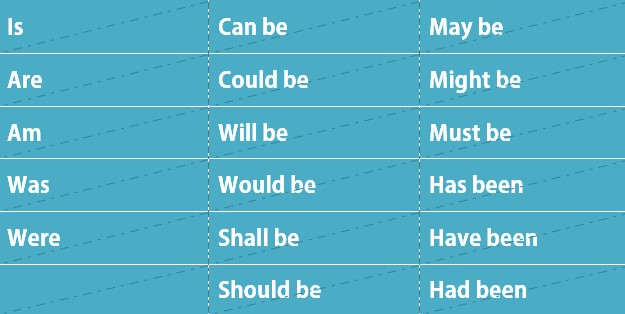Verbs followed by Infinitives
(5/5, 8 votes)
We know that one single clause can take only one finite verb, but it can take a few other non-finite verbs working as other parts of speech, in other words, verbs as complements. The non-finite verbs are infinitives, gerunds, and participles. However, some finite verbs are always followed by the infinitives; some are always followed by the gerunds or present participles; others are followed by either gerunds or infinitives.
Verbs That Are Always Followed by the Infinitives:
The following list of verbs must be followed by an infinitive; not any other kinds of non-finite verbs.
| Seem Offer Hesitate Demand Wish Refuse |
Need Forget Decide Want Pretend Learn |
Fail Claim Tend Prepare Intend Expect |
Attempt Strive Plan Hope Desire Agree |
Examples:
| Incorrect: You seemed being in a bad mood. Correct: You seemed to be in a bad mood. |
| Incorrect: He offered helping me in this project. Correct: He offered to help me in this project. |
| Incorrect: I did not hesitate giving her my number. Correct: I did not hesitate to give her my number. |
| Incorrect: He demanded working with the president. Correct: He demanded to work with the president. |
| Incorrect: John wishes staying in that hotel. Correct: John wishes to stay in that hotel. |
| Incorrect: I refused talking with her. Correct: I refused to talk with her. |
| Incorrect: I need going there. Correct: I need to go there. |
| Incorrect: He wants leaving this town. Correct: He wants to leave this town. |
| Incorrect: He forgot bringing the keys for me. Correct: He forgot to bring the keys for me. |
| Incorrect: My father decided going to the pilgrimage. Correct: My father decided to go to the pilgrimage. |
| Incorrect: He learned using the smartphone. Correct: He learned to use the smartphone. |
| Incorrect: My cat often pretends sleeping. Correct: My cat often pretends to sleep. |
| Incorrect: I failed reaching there on time. Correct: I failed to reach there on time. |
| Incorrect: He claimed being the best batsman in the team. Correct: He claimed to be the best batsman in the team. |
| Incorrect: He tends sleeping late. Correct: He tends to sleep late. |
| Incorrect: I have prepared quitting the job. Correct: I have prepared to quit the job. |
| Incorrect: He intends going to Alaska. Correct: He intends to go to Alaska. |
| Incorrect: He expected starting the journey earlier. Correct: He expected to start the journey earlier. |
| Incorrect: Alex attempted entering the cave but he failed. Correct: Alex attempted to enter the cave but he failed. |
| Incorrect: Robert strived ruling all the seven kingdoms. Correct: Robert strived to rule all the seven kingdoms. |
| Incorrect: He planned invading all of them. Correct: He planned to invade all of them. |
| Incorrect: He hoped triumphing every war. Correct: He hoped to triumph every war. |
| Incorrect: He desired winning the hearts of the people. Correct: He desired to win the hearts of the people. |
| Incorrect: I agreed traveling with him. Correct: I agreed to travel with him. |
Published By LearnGrammar.Net
Grammar
Read More
- How to Use "Therefore" in Sentences Avoiding Common Mistakes
- How to Use "Whereas" with Examples and Avoid Common Mistakes
- When and How to Use "Thus" Correctly Without Common Mistakes
- How to Use "On the Contrary" Properly with Meaning and Examples
- When and How to Use "Either/Or" with Examples and Common Mistakes to Avoid
- How to Use "On the Other Hand" Effectively without Mistakes
- How to Use "Respectively" with Example and Common Errors to Avoid
- How and When to Use "Moreover" Without Mistakes
- How to Use "Likewise" in Sentences Based on Context & When not to Use
- When & How to Use "Although" in Sentences to Avoid Mistake

